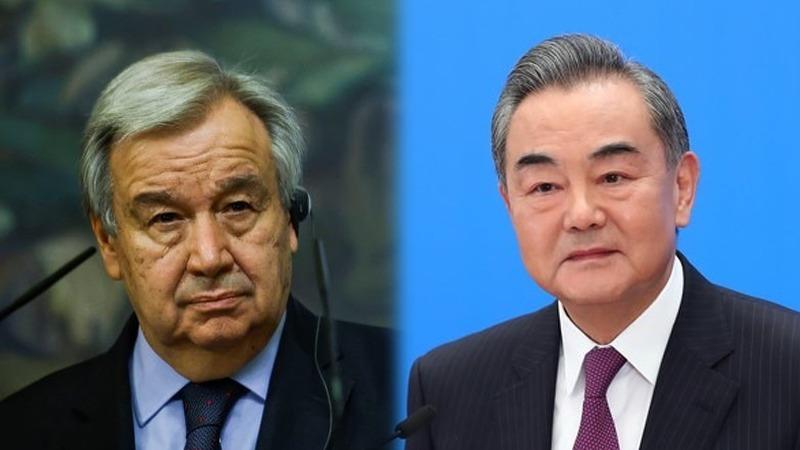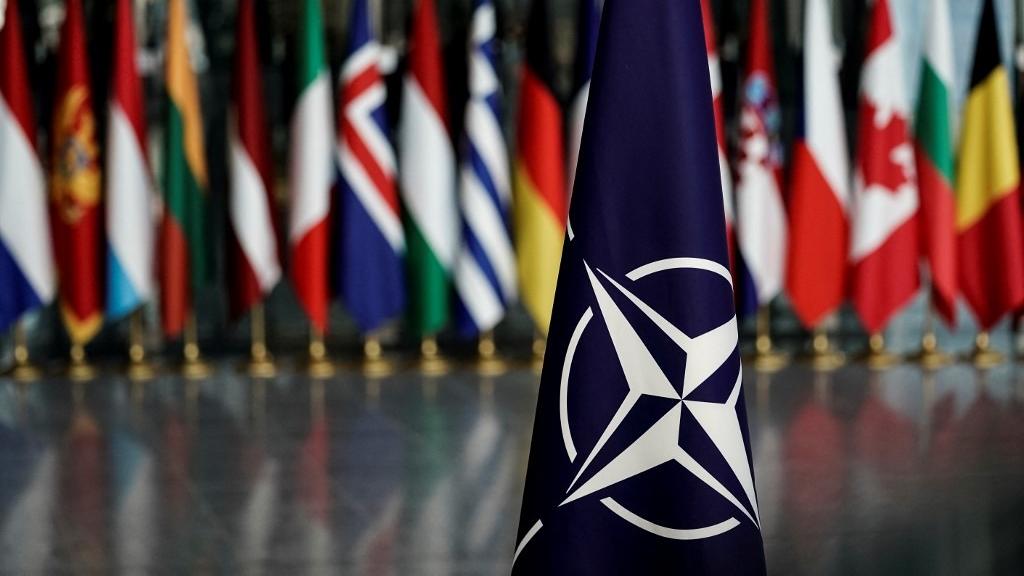 This combo photo shows Chinese State Councilor and Foreign Minister Wang Yi (right) and United Nations Secretary-General Antonio Guterres. (PHOTOS / XINHUA & AP)
This combo photo shows Chinese State Councilor and Foreign Minister Wang Yi (right) and United Nations Secretary-General Antonio Guterres. (PHOTOS / XINHUA & AP)
BEIJING - Chinese State Councilor and Foreign Minister Wang Yi on Monday met with United Nations Secretary-General Antonio Guterres via video link.
Wang said China has always attached great importance to its cooperation with the United Nations (UN) and the country has been a staunch supporter and contributor to the UN's cause over the past 50 years.
"We will continue to firmly uphold the purposes and principles of the UN Charter, the international system with the UN at its core, and support the UN in playing its due role in international affairs," he said.
We will continue to firmly uphold the purposes and principles of the UN Charter, the international system with the UN at its core, and support the UN in playing its due role in international affairs.
Wang Yi, Chinese State Councilor and Foreign Minister
Noting the changes and uncertainty the world is facing, Wang said China firmly opposes any words and deeds that create divisions and advocate the Cold War, and will make new contributions to the cause of peace and development of humankind.
ALSO READ: UN chief calls for nuclear weapons to be eliminated
Wang said China welcomes the active participation of all parties into the Global Development Initiative to form international consensus and take common actions.
Guterres hailed China's long-term firm support for multilateralism and the UN's core position.
He said the UN is ready to work closely with China to uphold and practice multilateralism, advocate international relations based on mutual respect, and jointly tackle global challenges, especially to promote the international community to provide greater support and assistance to developing countries in recovering from COVID-19 and tackling climate change.
The two sides also exchanged views on China-US relations.
READ MORE: Wang Yi: China to uphold, practice true multilateralism
The US side recently indicated that it does not want confrontation or Cold War and expressed hopes that bilateral relations will return to the right track, Wang said. He pointed out that the key is to put the words into concrete action and bring its China policy back to a rational and pragmatic track.
 A picture taken on Nov 20, 2019 shows a NATO flag at the NATO headquarters in Brussels, during a NATO Foreign Affairs ministers' summit. (KENZO TRIBOUILLARD / AFP)
A picture taken on Nov 20, 2019 shows a NATO flag at the NATO headquarters in Brussels, during a NATO Foreign Affairs ministers' summit. (KENZO TRIBOUILLARD / AFP)
Ready to continue talks with NATO on equality, mutual respect basis
There is no need for the Asia-Pacific region to establish any new military bloc, neither should there be confrontation instigated among major countries or any "small circle" be formed aimed at inciting a new Cold War, said Chinese State Councilor and Foreign Minister Wang Yi
Wang on Monday also met with the Secretary-General of the North Atlantic Treaty Organization (NATO) Jens Stoltenberg via video link upon invitation, expressing China's willingness to continue dialogue with NATO on the basis of equality and mutual respect to promote the sound and steady development of relationship.
Wang said the key to promoting ties lies in adopting correct perceptions towards each other.
There is no need for the Asia-Pacific region to establish any new military bloc, neither should there be confrontation instigated among major countries or any "small circle" be formed aimed at inciting a new Cold War, he said.
Wang said NATO should stay committed to its original geographical location, and play a constructive role in regional peace, stability and development.
Noting that NATO does not view China as a rival, Stoltenberg said the organization is willing to develop a constructive relationship with China based on mutual respect with no preconditions attached.
READ MORE: China military: NATO must stop troublemaking in S. China Sea
The two sides also exchanged views on the situation in Afghanistan.
Both parties deemed the virtual meeting positive and constructive, pledging to continue communications, improve the quality of dialogue and advance pragmatic cooperation.


